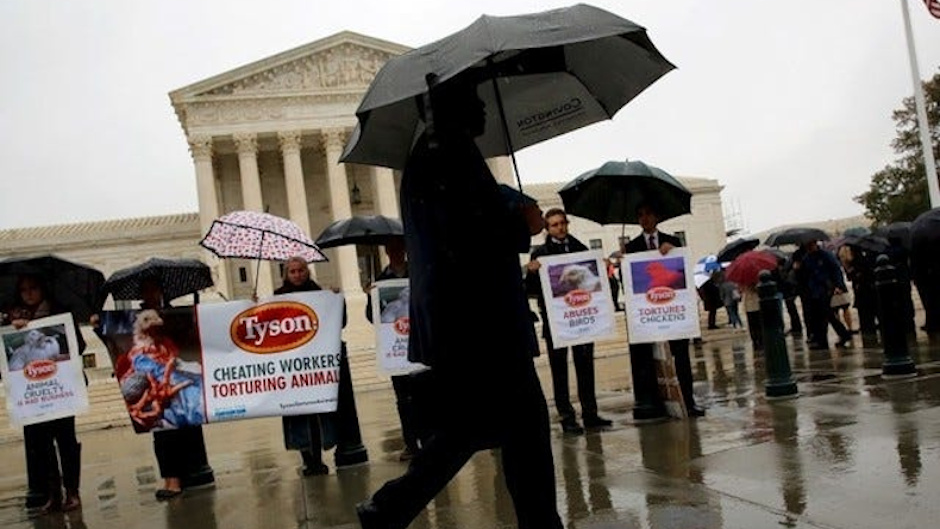An amicus brief authored by Professor Sergio Campos, signed by other law professors, was cited today in the Supreme Court ruling in Tyson Foods, Inc., v. Bouaphakeo. The court ruled against Tyson, adopting the positions in the brief written with Loyola Law School's Adam Zimmerman. In writing for the majority, the court rejected Tyson’s arguments in the class action suit.
The court wrote: It follows that the Court would reach too far were it to establish general rules governing the use of statistical evidence, or so-called representative evidence, in all class action cases. Evidence of this type is used in various substantive realms of the law. Brief for Complex Litigation Law Professors as Amici Curiae 5–9; Brief for Economists et al. as Amici Curiae 8–10. Whether and when statistical evidence can be used to establish classwide liability will depend on the purpose for which the evidence is being introduced and on “the elements of the underlying cause of action,” Erica P. John Fund, Inc. v. Halliburton Co., 563 U. S. 804, 809 (2011).
“We're still reviewing the opinion, but our strategy of neutrally explaining the ways statistics are used in complex litigation – and cautioning against a sweeping opinion barring their use – really seemed to resonate with Kennedy and the majority,” Campos and Zimmerman wrote in an email.
Read more about the class action case at Reuters

